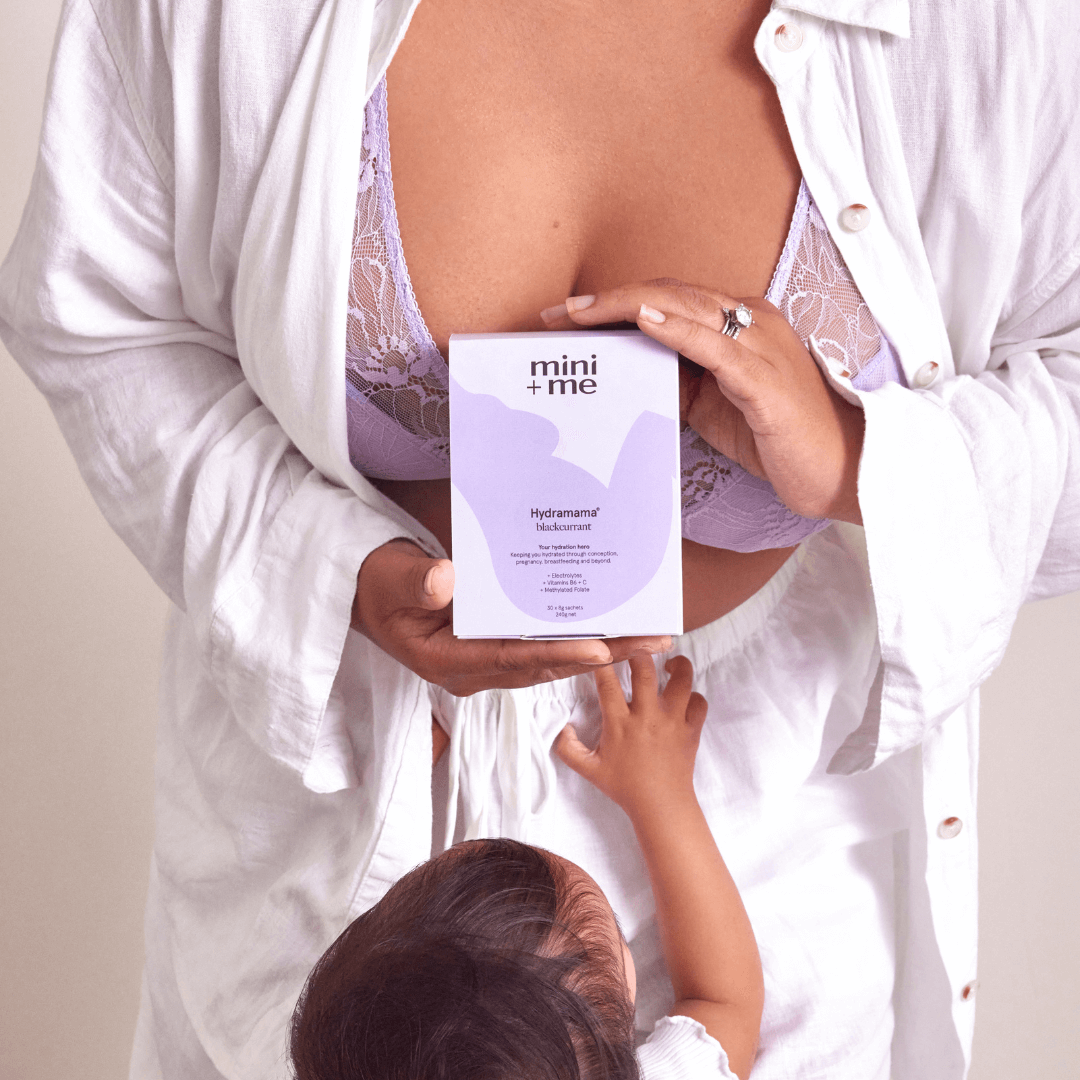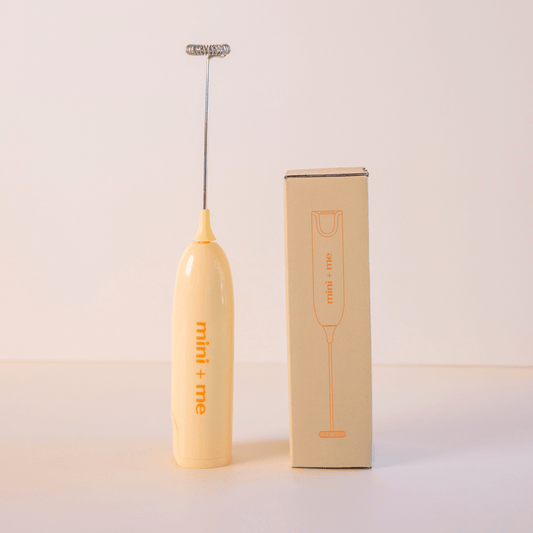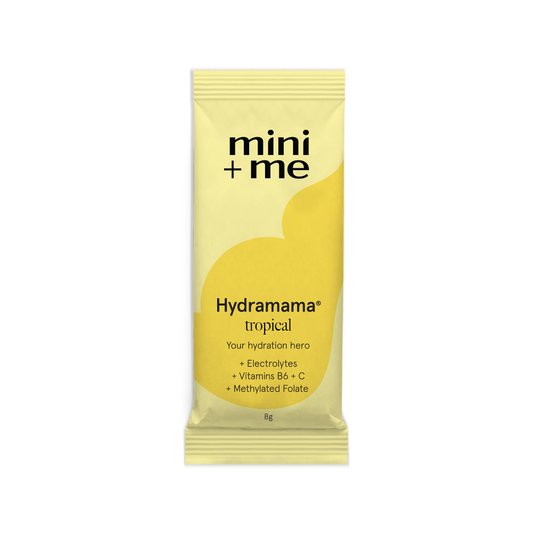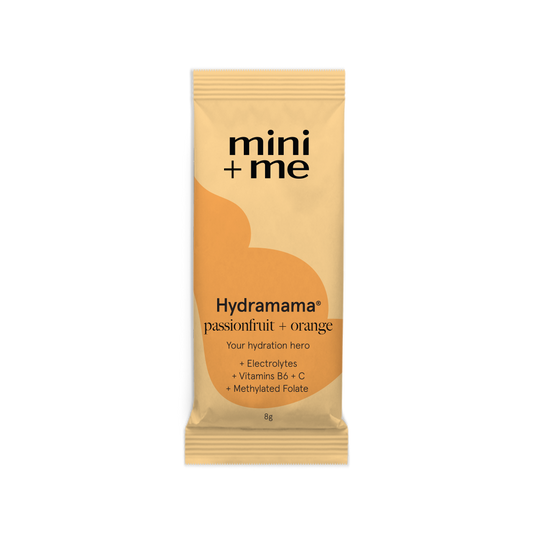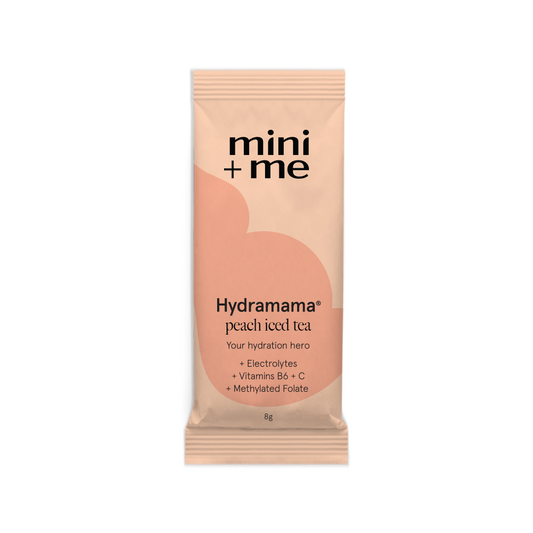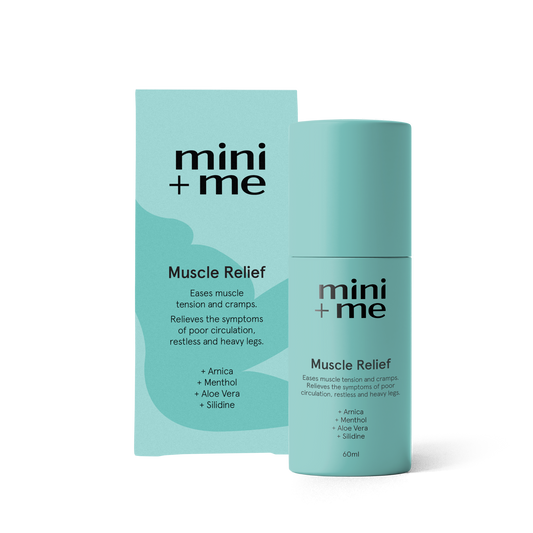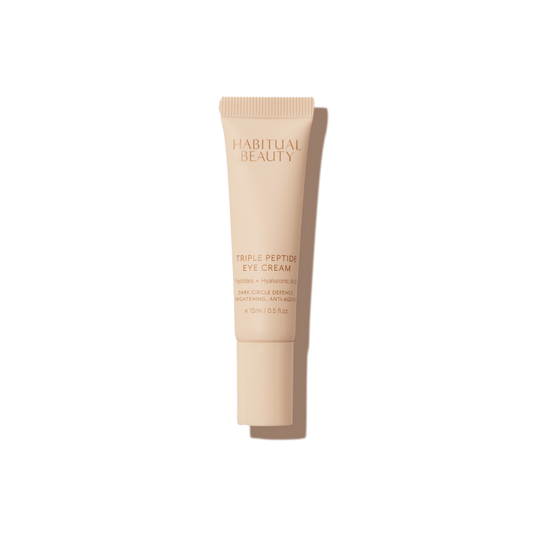Bringing your baby into the world is a huge transition - for your body, your hormones, and your sleep. So if you’ve been waking up drenched in sweat, you’re not alone. Postpartum sweating, especially at night, is very common in the early weeks after birth and can catch many new parents off guard.
Let’s explore why postpartum hot flushes happen, how long they typically last, and what you can do to stay cool and comfortable during this time of change.
Pregnancy (and postpartum) seems to be the gift that keeps on giving for me. I first experienced intense night sweats going through IVF and then in my third trimester so I would have to sleep with a towel underneath me (which worked out well considering my waters broke in bed!). It is one of those things where you just don't know what is normal and what isn't, until you speak about it.
Keira Rumble
Founder, Mini + Me
Why am I sweating so much after giving birth?
Postpartum night sweats and hot flushes are mostly caused by two things: hormonal changes and fluid loss.
During pregnancy, your levels of oestrogen and progesterone are high, and your body holds onto extra fluid to support your growing baby. After birth - especially once the placenta is delivered - your hormone levels drop rapidly (the biggest hormonal shift you are likely to experience in your lifetime!). This sudden shift affects the part of your brain that controls temperature regulation, often making you feel too hot even when the room isn’t warm.
In addition, your body begins to shed the extra fluid it retained during pregnancy. One way it does this is through your sweat glands, especially at night. It’s your body’s natural way of restoring balance.
Breastfeeding can also play a role. The hormone prolactin, which supports milk production, keeps oestrogen levels lower - so many breastfeeding mothers notice that the sweating continues a little longer.
When does postpartum sweating happen?
Postpartum sweating often begins in the first few days after birth and can be most noticeable in the first two weeks. It typically occurs at night, but some women experience it during the day as well.
It’s not unusual to wake up with damp sheets or feel like you need a change of clothes in the middle of the night. While it can be uncomfortable, this kind of sweating is considered a normal part of your body’s recovery process.
How long does it last?
Every parent’s experience is different, but most postpartum sweating settles within the first 6 weeks after birth. Some women notice improvements even sooner, while others (particularly those who are breastfeeding) may continue to experience occasional hot flushes for a few months.
If you’re still sweating heavily beyond 3 months postpartum, or if the sweating is accompanied by other symptoms (like fatigue, weight changes, or a rapid heart rate), it’s a good idea to check in with your GP to rule out other causes, such as thyroid issues.
When to speak to a healthcare provider
Postpartum sweats are usually harmless, but there are some signs to watch out for. Contact your GP, midwife or maternal child health nurse if you experience:
• Fever or chills (sweating with a high temperature may suggest infection)
• Pain or tenderness in your abdomen, breasts, or around any wound sites
• Ongoing, excessive sweating beyond a few months
• Other symptoms like heart palpitations, anxiety, or unexplained weight loss
These could indicate something more than just hormonal shifts, such as an infection or postpartum thyroiditis.
Trust your instincts - if something doesn’t feel right, it’s always worth checking.
Practical tips to manage postpartum sweating
Although you can’t stop the hormonal rollercoaster, there are several ways to feel more comfortable during this phase:
1. Keep your sleep space cool
• Use a fan or air-conditioning at night
• Open a window for fresh air
• Use light, breathable bedding (cotton or bamboo is ideal)
2. Wear natural, breathable fabrics
• Choose cotton or bamboo pyjamas and loose-fitting clothing
• Avoid synthetic fabrics that trap heat
3. Layer your bed
• Use a towel or muslin under you to absorb sweat
• Keep a spare sheet or pillowcase nearby for quick changes
4. Stay hydrated
• Keep a water bottle by your bed (we love to have 2 sachets of Hydramama in a bit 1L waterbottle with lots of ice)
• Drink regularly throughout the day to replace fluids lost through sweating
5. Watch your food and drinks
• Reduce caffeine, alcohol, and spicy foods in the evening
• These can raise your body temperature and trigger more sweating
6. Consider a cool evening routine
• A lukewarm shower before bed can help regulate your temperature
• Practice gentle mindfulness or breathing exercises to relax
A final word of reassurance
Postpartum sweating can feel intense - but it’s also a sign that your body is working hard to rebalance after birth. Most parents find that with a bit of time, rest, and hydration, things settle naturally.
If you’re ever unsure, reach out to your healthcare provider. And remember, you’re not alone in this. At Mini+Me, we’re here to support you every step of the way through the newborn period - from night sweats to night feeds.
References
Better Health Channel (Vic Gov). (2022). Changes after childbirth. Retrieved from https://www.betterhealth.vic.gov.au/
Medicine Today. (2021). Hot flushes and night sweats: not just menopause. https://medicinetoday.com.au/
Johns Hopkins Medicine. (n.d.). Postpartum Recovery: What to Expect. Retrieved from https://www.hopkinsmedicine.org/
Mayo Clinic. (2023). Postpartum symptoms: What’s normal and what to watch for. Retrieved from https://www.mayoclinic.org/
Cart is Empty
Your Cart is Empty
- Choosing a selection results in a full page refresh.
- Opens in a new window.




